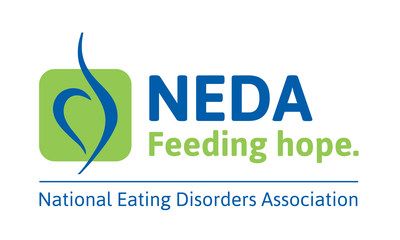The National Eating Disorders Association (NEDA) provides a critical grant through NEDA’s Feeding Hope Fund to support the Barriers to Treatment Access Study, led by Project HEAL in partnership with the Eating Anxiety Treatment (EAT) Lab at the University of Louisville . Eating disorders have some of the most complex and pervasive barr
|
NEW YORK, Dec. 11, 2020 /PRNewswire/ -- The National Eating Disorders Association (NEDA) provides a critical grant through NEDA's Feeding Hope Fund to support the Barriers to Treatment Access Study, led by Project HEAL in partnership with the Eating Anxiety Treatment (EAT) Lab at the University of Louisville. Eating disorders have some of the most complex and pervasive barriers to treatment of all mental illnesses. Yet to date, there is no published research documenting the extensive challenges that prevent people from access to life-saving care. Project HEAL, the only major U.S. nonprofit focused on equitable treatment access for eating disorders, has partnered with EAT Lab at the University of Louisville, to conduct the first national research study to quantify the systemic, healthcare, and financial barriers people face when seeking treatment. The National Eating Disorders Association's (NEDA) Feeding Hope Fund for Clinical Research has committed a generous grant to help fund this study and advance this work in the eating disorder community. The Barriers to Treatment Access Study for Individuals with Eating Disorders will collect data to understand the patterns and prevalence of myriad barriers to treatment and analyze trends across different geographies, ages, genders, ethnicities, sexual orientations, body sizes, insurance plans, diagnostic profiles, and treatment histories. "NEDA is committed to supporting individuals and families affected by eating disorders, and are proud to serve as a catalyst for prevention, cures and access to quality care. To meet that objective, we have taken a proactive approach to looking at models of training and partnership programs that illustrate innovation," said Geoff Craddock, Chairman of the Board, NEDA. "We believe the outcomes from this collaborative project between Project HEAL and the EAT Lab will be a catalyst for advocacy work for years to come and will help to create informed strategies for policy reform efforts across the eating disorder treatment landscape and throughout the U.S. healthcare system." "Project HEAL is thrilled to have NEDA's support for the groundbreaking research we're doing in partnership with Dr. Cheri Levinson and EAT Lab at the University of Louisville. Project HEAL's mission is to break down barriers to treatment access, and while there is widespread consensus and ample anecdotal evidence that our healthcare system is far from equitable, there has yet to be research conducted in the U.S. to quantify the barriers that so many eating disorder sufferers experience when they embark on their recovery journey. We believe that a better understanding of these barriers will be foundational to Project HEAL, NEDA, and the entire eating disorder community as we come together in the fight to make healing accessible to all." - Rebecca Eyre, Chief Executive Officer, Project HEAL "The EAT lab at the University of Louisville is extremely excited to be partnering with Project HEAL on this crucial work that will help alleviate barriers to accessing eating disorder treatment. As a practicing clinician, clinical director of an eating disorder program, and clinical treatment researcher, I am far too familiar with the daily barriers that prevent up to 80% of individuals with eating disorders from receiving life-saving treatment. This work, which will empirically quantify the most common barriers and their impact on treatment seeking, is a first step in breaking down these systemic barriers and providing equitable treatment for everyone who suffers from these deadly illnesses." - Dr. Cheri Levinson, Director, EAT Lab, University of Louisville. About NEDA: The National Eating Disorders Association (NEDA) is the largest nonprofit organization dedicated to supporting individuals and families affected by eating disorders. NEDA supports individuals and families affected by eating disorders, and serves as a catalyst for prevention, cures and access to quality care. Through our programs and services, NEDA raises awareness, builds communities of support and recovery, funds research and puts life-saving resources into the hands of those in need. For more information, visit www.nationaleatingdisorders.org. About Project Heal Project HEAL is the only major nonprofit organization in the U.S. focused on equitable treatment access for people with eating disorders. Through our Insurance Navigation, Treatment Placement, and Cash Assistance programs, we break down systemic, healthcare, and financial barriers to treatment at every level of care. We support individuals and communities that are excluded from and marginalized within the eating disorder treatment landscape. Project HEAL also partners with eating disorder providers, nonprofits, advocates, policy leaders, and researchers toward our vision that every person with an eating disorder has the resources and opportunity they need to recover. To learn more, visit www.theprojectheal.org. About the EAT lab: The Eating Anxiety Treatment (EAT) Laboratory has a five-pronged mission, all of which center on improving the lives of those with eating disorders. Our mission is to (a) conduct cutting-edge research to develop novel treatments for eating disorders, (b) provide high-quality, evidence-based treatment for eating disorders (c) train the next generation of eating disorder researchers and clinicians, (d) distribute scientifically-based prevention programs across the community, and (e) advocate for more awareness, better treatment, and services for eating disorders. For more information, visit www.louisvilleeatlab.com Media Contact:
SOURCE National Eating Disorders Association |





